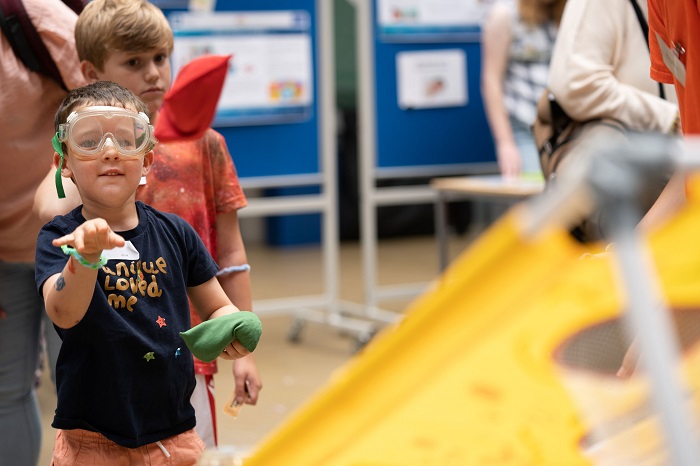Education
Fueling Tomorrow’s Innovators: The Importance of Kids’ Science Engagement in STEM

- Out-of-school science engagement positively impacts children’s long-term interest and subject choices in STEM at advanced levels.
- University of Nottingham’s Summer Scientist Week fosters lasting interest in science among children, influencing A level subject selection and reinforcing STEM engagement.
Engaging children early with science can have long term impacts on subject choices at GCSE and A level, and improve uptake of STEM subjects, according to new research.
New research from the University of Nottingham’s School of Psychology suggests that out-of-school science activities, research participation and a child’s family interest can increase both knowledge and interest in science, resulting in a higher likelihood of studying a STEM subject at an advanced level. The study has been published in Research for All.
This study investigated the impact of Summer Scientist Week, an annual out-of-school science engagement event for 4 -11-year- olds and their families held at the University of Nottingham.
This event introduces primary school age children to psychology-related research and activities about the mind and brain. Findings from interviews conducted with children and parents at the event, as well as survey data from previous attendees aged 14-17-years, indicated an increase in knowledge and interest in science that was maintained over several years, influencing choices in A level subjects.
Summer Scientist Week is an annual 5-day science engagement event for 4-11-year-olds held at the University of Nottingham, UK. Over 3,500 children have attended since the event began in 2007, with many returning to attend in subsequent years. Families attend for a 3-hour session and take part in a range of different activities: Children have the opportunity to participate in a range of gamified research studies, exposing them to the scientific methods used to study cognitive processes such as attention, memory, language, spatial, motor and social skills.
Children and their parents were interviewed at the event and a selection of previous participants were also interviewed to assess the long-term impact of taking part in the event.
Children who were interviewed after participating in the research activities at Summer Scientist Week expressed an interest in finding out more about the brain, findings from the studies they participated in, and how researchers use these findings. Parents also commented that engagement with Summer Scientist Week activities has led to an increase in their children’s interest in science.
We know that engaging children in STEM subjects can be a challenge and they often seen as difficult subjects so often aren’t pursued by young people. By introducing children at a young age to science-based subjects outside of school we have shown that there are clear benefits to engaging them early with these topics. This shows how important it is to make science accessible and fun and that if children are interested they are more likely to continue to engage with STEM subjects in their education.
Professor Lucy Cragg, School of Psychology
Source: University of Nottingham























































